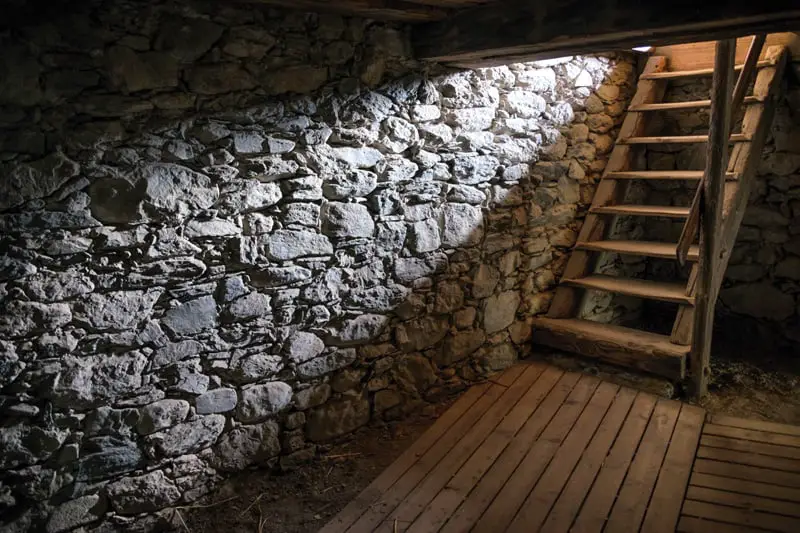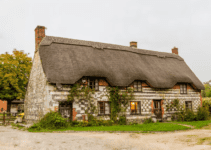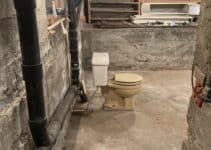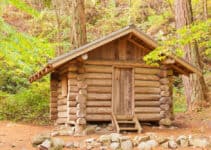When looking around an old house, you might have noticed that it had a cellar. Cellars were common in older buildings, despite there being objectively more room to make above-ground spaces larger.
But why do old houses have cellars? The main reason why old houses have cellars is for storage. Many modern homes have garages for storage, but these only became a thing once cars were more common. Before then, outbuildings or cellars were the primary storage spaces.
In this article, we’ll look in more detail at why old houses have cellars and when they were phased out of more modern buildings.
Why Do Old Houses Have Cellars?
Old houses had cellars for storage. It was mainly reserved for coal or wood storage, which was used to power furnaces and cooking fires. But why was this stored in the cellar?
The short answer is that coal is very dirty and dusty, and it’s best kept away from living spaces. Although you might need to carry it upstairs as needed, it was always a better idea to keep it in the cellar to avoid most of the soot. Also, in some homes, furnaces would be located in the cellar.
But cellars would also be used to store food that needed to be kept cool. Of course, it wouldn’t be kept in the same space as the coal!
Some would even have a root cellar, which was a completely separate space specifically for storage of root vegetables and similar items.

This is because the ground is a very good insulator, and the temperature is far more regulated underground than it is above.
In the days before refrigeration, underground storage was your best bet for keeping fresh food edible.
When Did Houses Stop Having Cellars?
Houses in the UK stopped having cellars fairly recently. It’s only since the 1960s that new-build homes haven’t had cellars dug out.
There are a couple of reasons for this:
Electricity
Electricity becoming more common (combined with refrigeration technology) meant that homes didn’t need underground space to store food in the summer.
Nowadays, we’ve all got fridges and freezers in our homes, and these are far more practical for storing food!
Plumbed Gas
Similarly, modern homes rely on plumbed gas and electricity for their heating needs. And since we don’t need coal anymore, there’s no need for spaces to store it.
Of course, this process started a while before the 1960s, but by that point, cellars were used for other things anyway.
Underground Infrastructure
While arguably one of the less common reasons, we can’t overlook the underground infrastructure that was in place.
By this, we mean things like sewers, water pipes, cables, etc. Much of this would’ve been put in fairly close to the surface, and trying to move it to dig a cellar would be expensive and generally unnecessary.
When working around homes that already had basements, workers would have to dig deeper. This is objectively more difficult, so it’s best to avoid it where possible.
Impracticality
Once cellars were no longer necessary, setting them up became an impractical expense. It involves digging a big hole, setting deeper foundations and, ideally, waterproofing.
While older cellars weren’t waterproofed, it’s a standard many of us would expect in more modern homes.
Why Don’t English Houses Have Cellars?
Cellars are certainly less common in newer English homes than they used to be, but you’ll find plenty of them if you look close enough.
Cellars can be common in urban areas (where they’re often more visible, too) due to space constraints. Rural homes may have cellars, but they’re less likely to have windows and so won’t be as visible.
Considering it was only in the 1960s that cellars were phased out, there are still plenty of English homes that have them.
However, the rate at which we build homes has certainly increased, so homes with cellars are probably in the minority.
One of the main reasons why cellars are less common in England than in other countries is because of how wet it is here.
Unlike many areas of the USA, for example, when you dig a hole in England it’ll usually fill with water! As such, cellars are expensive and impractical compared to building above-ground storage.
Final Thoughts
So, that’s why old houses have cellars. The main purpose was to store coal or firewood, but they were also ideal for keeping food cool in the summer.
Now that we have electricity and gas heating, cellars are less useful than they were. But if you’re lucky enough to live in a home with a cellar, you’ve got a good space to use however you want!



